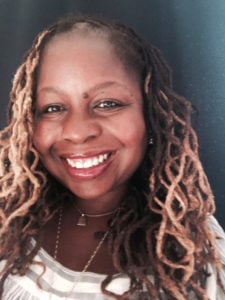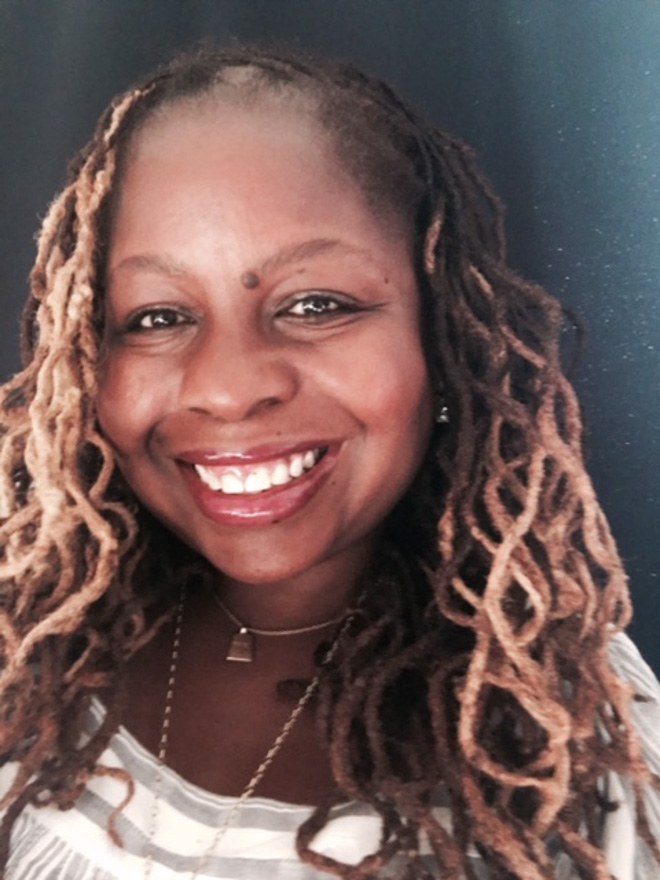Veronica Chambers, John S. Knight fellow at Stanford, is a prolific author and journalist. Her latest work, “The Meaning of Michelle: 16 Writers on the Iconic First Lady and How Her Journey Inspires Our Own,” offers essays from 16 noteworthy contributors on what Michelle Obama means to American culture. Chambers will hold a panel on Feb. 7 at Books Inc. in Town & Country to discuss the book. The Daily chatted with Chambers about race, our current political climate and Obama’s illustrious biceps.

The Stanford Daily (TSD): How does “The Meaning of Michelle” compare to your other works, and what, in your opinion, is the role of this type of biographical storytelling?
Veronica Chambers (VC): I had written for other anthologies before, and I always loved being in a collection with other writers. I think it’s a great way to amplify your voice. One of the very first collections I was in was a book called “The Bitch in the House,” which is women writing about work, marriage and motherhood, and at the time, I wasn’t married or a mother, but I was in this book with all these more established writers. It was a chance for other people to get to know my work … When the publication date came out for [“The Meaning of Michelle”], it wasn’t just my book — it was the conversation of 16 other people. So it’s very nice to share it, because writing is usually so solitary. It’s nice to have a project like this where it’s about conversation and ideas.
TSD: What most inspires you about Michelle Obama?
VC: Oh my god, let me count the ways. I think that from the time of the first campaign to the eight years in the White House, it meant a lot to me. When I was growing up, there weren’t a lot of women who had brown skin, who looked like me, in prominent places, either in the media or movies or TV. Then to have someone who’s not an actress … a real woman who’s accomplished, who’s super educated, excelling in her life — it’s really important and it creates a real sense of possibility. People always ask me what I think Michelle Obama’s legacy will be, and I think it’s authenticity and possibility.
TSD: In what ways will Michelle Obama use her platform as the first African-American FLOTUS to speak to the minorities in America?
VC: I think she has great bipartisan support. One of the things that she did that was very inspiring was that she took on the cause of military families. My mom was a military mom, and my dad was in the Air Force, and military families tend to be more conservative — it tends to be more Middle America, not so coastal. I think that she’ll continue to do that kind of work, looking to support communities and families that need it the most. That’s a bipartisan issue handled with grace, and I hope we get back there very soon.
TSD: In an interview with New York Public Radio, you stated that Michelle Obama “lived the questions out loud.” What kind of questions did she live out loud, and how do you think her graceful and confident example facing these questions influence women of color?
VC: I think that being a first or only is really tough. And unfortunately, we’re still at a time where there is a first black president and black first lady. When you do something that no one who looks like you has done before, there are a lot of questions — like how will you handle it? How are you different from other people? How are you the same? Are you as good as this person?
I was the first black woman editor at the New York Times Magazine – that’s crazy! I’m not that old where you’d think I could be the New York Times’ first anything, but I was… People wanted to know about things, they had questions about my hair, they wanted to know where I was from, they wanted to know if I only listen to hip-hop. When people aren’t exposed to difference, there’s a lot of burden put on you to explain.
I think one of the things that the Obamas did really well is that they really took their jobs as the president and first lady seriously, and they really handled the questions and distractions with grace. And I think that takes a lot of confidence. As the first black woman editor, I felt like I couldn’t just fade in. I never had an off-day. If I wasn’t prepared for the meeting – some of the guys would come in and say, “Oh, I was out late last night” – but if I didn’t prepare for the meeting, it was like, “Oh, we hired a black woman and look, she doesn’t have her ideas.”
The time I was there, I had so little social life, because I was trying to do my job perfectly. One of the essays in the book talks about how Michelle Obama is flawlessly imperfect. She says, “I’m not perfect, but I’m doing my best.” When I was younger, I didn’t really have the confidence to say that, because I felt that if I failed, I failed everybody who ever looked like me and whoever came before me. And that’s like a lot of pressure.
TSD: The New York Times review of your book mentioned that you wake up at 5 a.m. twice a week to get guns like Michelle — what’s your lifting routine?
VC: Well, I still don’t have her arms. But I think it’s possible. I just have not figured out the right thing for me. But I do not give up. I think the fitness that she advocated and taking care of yourself is so amazing. The president joked at the White House Correspondents’ Dinner that he looked older while she seemed to be aging backwards. Though, if you google “Michelle Obama workout routine,” there’s some things from her trainer.
TSD: “The Meaning of Michelle” was nominated as one of Book Riot’s “11 Books to Help Us Make It Through a Trump Presidency.” In today’s political climate, what kind of effects do Michelle’s words, actions and example have on our society?
VC: I was so happy when I saw that! I feel like we’re all in a little bit of a PTSD from the inauguration. So many things have happened in the last few weeks that [are] — I don’t think it’s unfair to say — shocking and frightening. But the thing is, I think that we have to carry history with us. The last eight years can’t just disappear because of what we are dealing with now. It’s been quicker and more than we expected, but we can carry the experience and the inspiration with us because I think it’s really important that we don’t fall in to disappear or give up… I really agree with [Senator Cory Booker ’91 M.A. ’92] when he says, “the power of the people is always greater than the people in power.” I think if we can keep that in mind, then we’ll be okay. It’s not gonna be easy, but we’ll be okay.
This transcript has been condensed and lightly edited.
Contact Ellie Bowen at ebowen ‘at’ stanford.edu.
